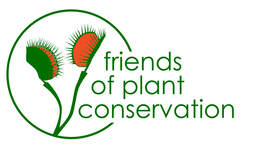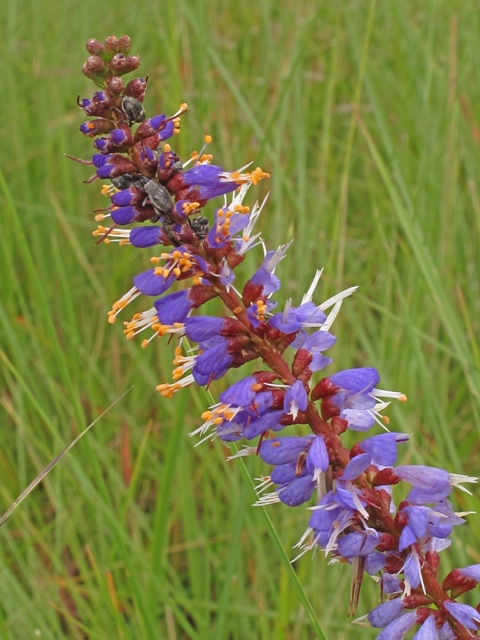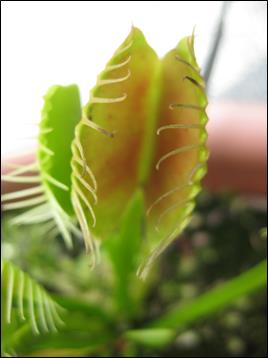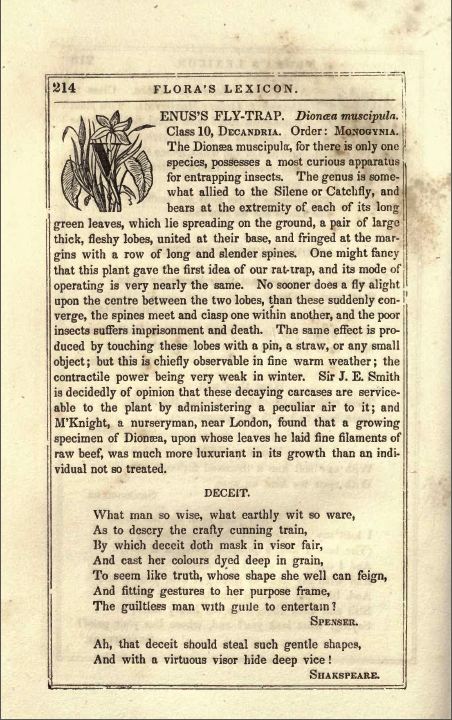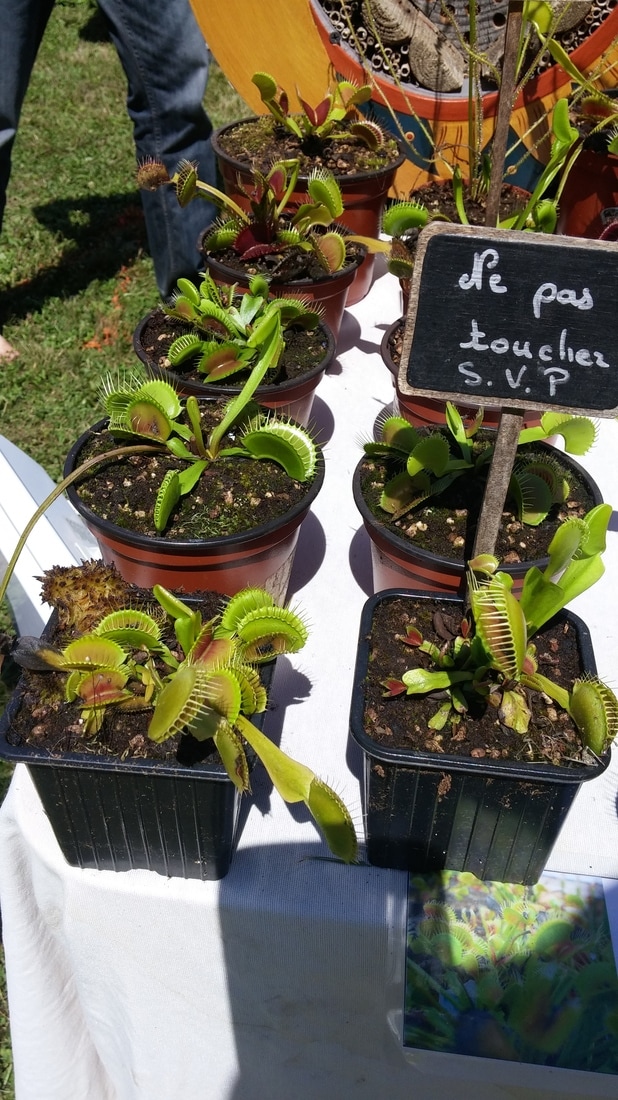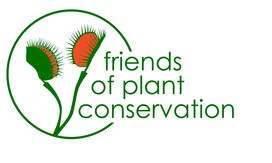Hog Branch Ponds
|
Amorpha georgiana var. confusa, Georgia False Indigo.
Photo courtesy Alan Cresslar from Lady Bird Johnson Wildflower Center, www.wildflower.org |
Dionaea muscipula, Venus's Fly Trap
|
Among the State Protected plants on the Hog Branch Preserve are:
Amorpha georgiana var. confusa, GA False Indigo Dionaea muscipula, Venus' flytrap Eleocharis elongata, Slim spikerush Lachnocaulon minus, Small's bogbutton Ludwigia suffruticosa, Shrubby primrose willow Platanthera nivea, Snowy Orchid Rhynchospora harperi, Harper's Beaksedge Rhynchospora pleiantha, coastal beaksedge Scleria reticularis, Netted Nutrush It is great fun to learn about these plants and the habitats in which they grow. For a variety of reasons (habitat loss, development, hydrology changes, fire suppression and more) their numbers have declined precipitously. They are therefore protected by the State for future generations. You can help to protect one or more of these species....FIRST, access to the Preserves is limited to guided Field trips. There are no trails, no amenities, and management activities occur throughout the year that could endanger visitors. So please let us know if you have a research need to access the site and we will do what we can to accommodate your needs. SECOND, join the Friends and participate in workdays on site. THIRD, of course, donations toward Land Stewardship are always welcome and needed. |
|
Venus Flytraps for sale at a Market in France in the summer of 2016. Photo courtesy of Mary Jo and John Wilson.
|
Flytraps in historyThe page to the left is from Flora's Lexicon; an interpretation of the language and sentiment of flowers; with an outline of botany, and a poetical introduction. Written by Catharine H. Waterman and published in 1855, it promotes the idea that the plants can be "fed" raw meat, a practice that continues today. In fact, it is required that an insect activate and trigger hair, twice, that causes the two "leaves" to quickly close on the insect, which is then liquefied to provide nourishment to the plants. Growing in notoriously nutrient poor soil, the insects provide what is needed for the plants to grow, flower, and produce seed.
A friend spent most of last summer in France and sent along the photo to the left. Taken at a popular farmer's market, they offer Venus Flytraps, which are native only to a small area of coastal North Carolina. At one time they were also in one or two counties in South Carolina, but those populations have been extirpated. These unique carnivorous plants have maintained their popularity since the early 1700s, whent brought to the attention of many by then NC Governor Arthur Dobbs. That popularity, along with habitat loss, has brought the plants in increasing danger of extinction. It has also brought felony charges, and possible jail time, to those found taking the plants without the written permission of the landowner. |
